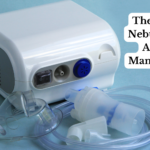Living with asthma can present unique challenges, especially in a workplace environment. Triggers such as poor air quality, stress, or exposure to allergens can make managing asthma at work difficult. However, with the right strategies and precautions, you can stay productive while prioritizing your health. This guide offers practical tips to help you navigate your workday with ease.
Common Workplace Asthma Triggers
Asthma triggers vary from person to person, but the workplace can often introduce specific challenges. Here are some common triggers to be aware of:
- Poor Air Quality: Dust, mold, chemical fumes, or inadequate ventilation can aggravate asthma symptoms.
- Stress: Deadlines and workplace pressures may increase stress levels, which can affect breathing and potentially trigger asthma.
- Strong Scents: Perfumes, air fresheners, or cleaning products may cause irritation.
- Environmental Allergens: Pollen entering through windows, pet dander on coworkers’ clothes, or dusty areas can be problematic.
Being mindful of these triggers is the first step toward managing them effectively.
Preparing for the Workday
Proper preparation can make a big difference in ensuring a smooth and productive day:
- Communicate with Your Employer: Let HR or your manager know about your condition. Sharing your needs ensures they can provide accommodations, like a scent-free environment or adjustments to your workspace.
- Carry Your Medications: Always have your rescue inhaler and any prescribed medications within easy reach. Consider keeping a spare inhaler at your desk or in a locker.
- Asthma Action Plan: Share a copy of your asthma action plan with trusted colleagues or supervisors so they know how to assist in case of an emergency.
Creating an Asthma-Friendly Workspace
Your work environment plays a significant role in managing asthma symptoms. Here are tips for creating a healthier space:
- Choose Your Location Wisely: If possible, sit away from high-traffic areas, dusty corners, or areas near strong odors like the kitchen or bathrooms.
- Personal Desk Hygiene: Keep your desk clean and dust-free. Use hypoallergenic cleaning wipes to minimize irritants.
- Air Purifiers and Ventilation: Advocate for air purifiers in shared spaces or position a personal air purifier at your workstation. Ensure proper ventilation by opening windows (if the outdoor air is clean) or using fans to circulate fresh air.
Managing Asthma During Work Hours
Once your workday begins, it’s essential to monitor your symptoms and manage your asthma effectively. Here’s how:
- Take Regular Breaks: Step away from your desk for a few minutes to stretch, practice deep breathing exercises, or use your inhaler if needed.
- Stay Hydrated: Drink plenty of water throughout the day. Staying hydrated helps keep your airways moist and reduces irritation.
- Anti-Inflammatory Snacks: Keep healthy snacks, such as fresh fruits or nuts (if not allergic), on hand to fuel your body without aggravating your asthma.
- Handle Emergencies: If symptoms arise, don’t hesitate to use your inhaler and inform someone nearby. Know when to seek medical attention if symptoms worsen.
Building a Supportive Environment
A supportive workplace culture can significantly reduce the stress of managing asthma. Here’s how you can foster understanding:
- Educate Your Colleagues: Share basic asthma facts with your coworkers so they’re aware of your condition and can avoid inadvertently triggering symptoms.
- Advocate for Policies: Encourage your workplace to adopt asthma-friendly practices, such as fragrance-free zones or regular air quality checks.
- Team Communication: Let teammates know if there are specific triggers you’d like to avoid, such as smoking near entrances or using strong perfumes.
conclusion
Asthma doesn’t have to stand in the way of your career or productivity. By taking proactive steps, creating an asthma-friendly environment, and educating those around you, you can manage your condition effectively while excelling in your professional life. Remember, prioritizing your health is key to sustaining long-term success.
If you have additional concerns, consider consulting your doctor or a respiratory specialist for tailored advice. For more tips on managing asthma in various aspects of life, join the Asthma Friend community.












